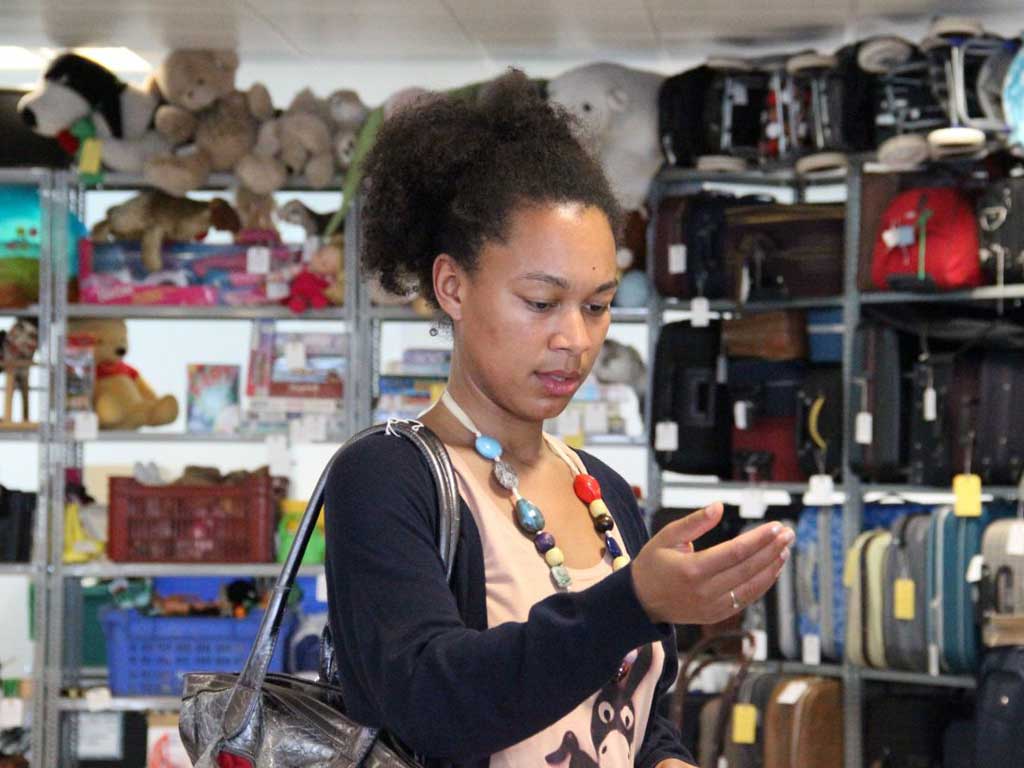A journey to the heart of Manchester
A new play, set in an office block, reveals the city's secrets

Manchester Lines, a new production commissioned by the Library Theatre Company, sounds like the kind of project people might study on arts admin PhDs. It is, of course, "site-specific".
It takes place on the fifth floor of an office block in Manchester. And it's "cross-arts". It involves a "site-specific theatre specialist", a playwright who's also a poet and novelist, a composer, a designer, a set that's a bit like an art exhibition, musicians and actors.
It's one of three site-specific works commissioned by Chris Honer, the artistic director of the company, as it waits to move to a new venue. On a walk in the Pennines, Honer bumped into the director Wils Wilson, who has made experimental theatre projects even the fiercest critics have described as "unforgettable". Wilson contacted the poet and playwright Jackie Kay, and the composer Errollyn Wallen, and a collaboration was born.
"It's partly a love letter to the city," Kay says, "its Metro lines, its buses, its wonderful buildings, its history, its past, its rivers and its open spaces. There is so much about Manchester to celebrate." She should know. Born to a Scottish mother and a Nigerian father, and adopted and brought up by communists in a Glasgow suburb, she lived in London for years before adopting Manchester as her home. Perhaps it's not surprising that her starting point for the project was "journeys". "We thought," she says, "we'd do something on the theme of lines: song lines, lines that run on top of a city like the Metro lines, the tram lines, the train lines, and the lines that run underneath."
Her thoughts about journeys took her to a lost property office, and then to the one at Baker Street, which is the oldest in the country. The man in charge was "like a philosopher". After talking to him, and seeing the kind of things people leave on buses and trains, which include prosthetic legs and other people's ashes, she became fascinated with the idea of property and loss. So then, she explains, "it really became a play about loss."
One of the characters is "a keeper of lost things, but also a keeper of lost souls". He is, she says, "the person who connects everybody else together in the play", who are also connected by the theme of adoption. It was the subject of her first poetry collection, The Adoption Papers and of her award-winning memoir, Red Dust Road. So why has it popped up again?
"It's interesting," says Kay. "We mind that with writers in a way we don't with visual artists. It's me, but it's also not me."
The work is "an ensemble piece", made up of songs, dialogue, poems and monologue. "To me, it all felt very collaborative. I really enjoy listening, and trying to learn from other art forms."
Errollyn Wallen agrees. As someone who mostly works in opera and contemporary classical music (who is, in fact, the first black woman to have her work performed at The Proms) she relished the opportunity to work with Kay and Wilson. She also liked working with actors. "I knew," she says, "that how they delivered the songs would be in character. I had to cut to the chase emotionally. I had their voices in my mind. The key thing was to find a strength and a truthfulness in the music".
"Truthfulness" is what all artists aim for, and what all audiences want. But isn't there a danger that projects set in offices, or tunnels, or stations, are a bit of a gimmick? "That is a risk", says Kay. "But site-specific work can feel fresh and different. The audience will go through a kind of maze, so they will have a sense of being lost. We're aiming for a really deep experience that's both intensely pleasurable and thought-provoking."
To 7 July (librarytheatre.com)
Join our commenting forum
Join thought-provoking conversations, follow other Independent readers and see their replies
Comments